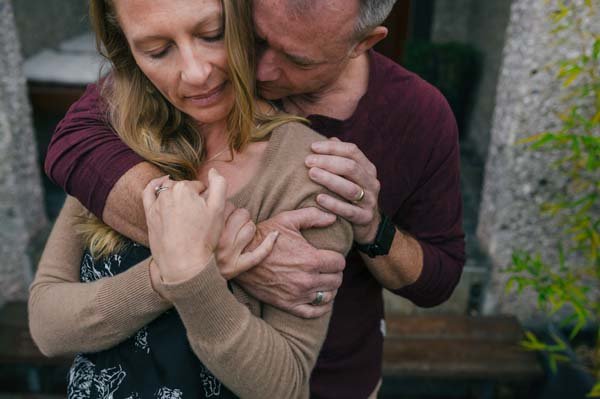Mistakes are a normal and unavoidable part of life. The same goes for the inevitability of conflict in a couple. Think of it - you didn’t grow up in the same family, so the social rules you integrated aren’t the same. That makes it inevitable that you’ll hurt the other person at some point. Of course, you want to do your best to learn and grow and prevent such situations. But it’s even more important to learn how to repair the damage caused by mistakes and conflict.
A forgiveness mindset considers the fallibility of us all. A major component of seeking forgiveness is learning how to offer an authentic apology. Let’s take a closer look at the importance and the construction of genuine apologies.
Why Apologies Are Important in Relationships
Repairing Injuries
Certain behaviors or actions can damage your connection. They can also leave your partner feeling injured or hurt. An authentic apology is an excellent starting point in talking through it together.
Your apology also makes clear to your partner that you are not deflecting blame to them. You are taking responsibility and holding yourself accountable.
Honoring Boundaries
Quite often, the need for an apology is created when one person disrespects the other’s boundaries. Taking ownership of this transgression is a powerful way to show that you understand your partner’s needs and will do the work to avoid such a violation in the future.
Showing Remorse
A sincere apology is one way of saying you are unhappy with yourself. You are not proud of your actions and do not want to repeat them. Your apology is a statement that you:
Try to always treat others with respect.
Hold yourself to a high standard.
Should not be judged by your worst moments.
Are comfortable shouldering the blame.
Creating Space For Forgiveness
Your willingness to apologize helps your partner shift into a place of forgiveness. They have been heard and validated. Your humility and integrity inspire them to meet like with like.
An apology is a request to be forgiven. When done with authenticity, it sets a tone of reconciliation and resolution.
The Elements of an Authentic Apology
Building off the above discussion, you may already have some ideas about where this next section will go.
Name the Problem
Make it crystal clear that you understand what you did, and why you need to apologize. Avoid the celebrity apology, e.g. “I’m sorry if anyone was offended.” You don’t apologize for someone else’s feelings. You apologize for your own behavior.
Take Full Responsibility
Do not shift blame. Hold yourself accountable. Articulate your regret and remorse. This is not the time to grasp for excuses or how your partner was in the wrong too. Step up and own up.
Promise to Make Amends
It doesn’t end with “I’m sorry.” An authentic apology includes an actionable plan to make amends. Express that you will do the work to make sure it does not happen again.
Ask For Forgiveness
Just because you apologize, it’s not a given that you’ll be forgiven. Ask for forgiveness and give your partner time and space to think.
A note on forgiveness: If you and your partner forgive one another, it’s not a sign that anything has been condoned or forgotten. The goal is to move on without anger, guilt, or resentment. Forgiveness is an ongoing dialogue in your relationship.
Getting Better at “I’m Sorry”
Apologies and forgiveness are skills you can develop. This means they require work to learn. It also means that there is no finish line. You must keep learning and evolving. This process is made smoother when done in the presence of a skilled, unbiased guide.
If you want to know more about how I think of couples and relationships, come visit my couples and marriage counseling page. If you are in Minnesota, I’m here to help. Contact me, let’s talk, and let’s get you both on a path to repair. You can call at 612.230.7171, email me through my contact page, or click on the orange button to self-schedule a free, 15-minute phone call.



